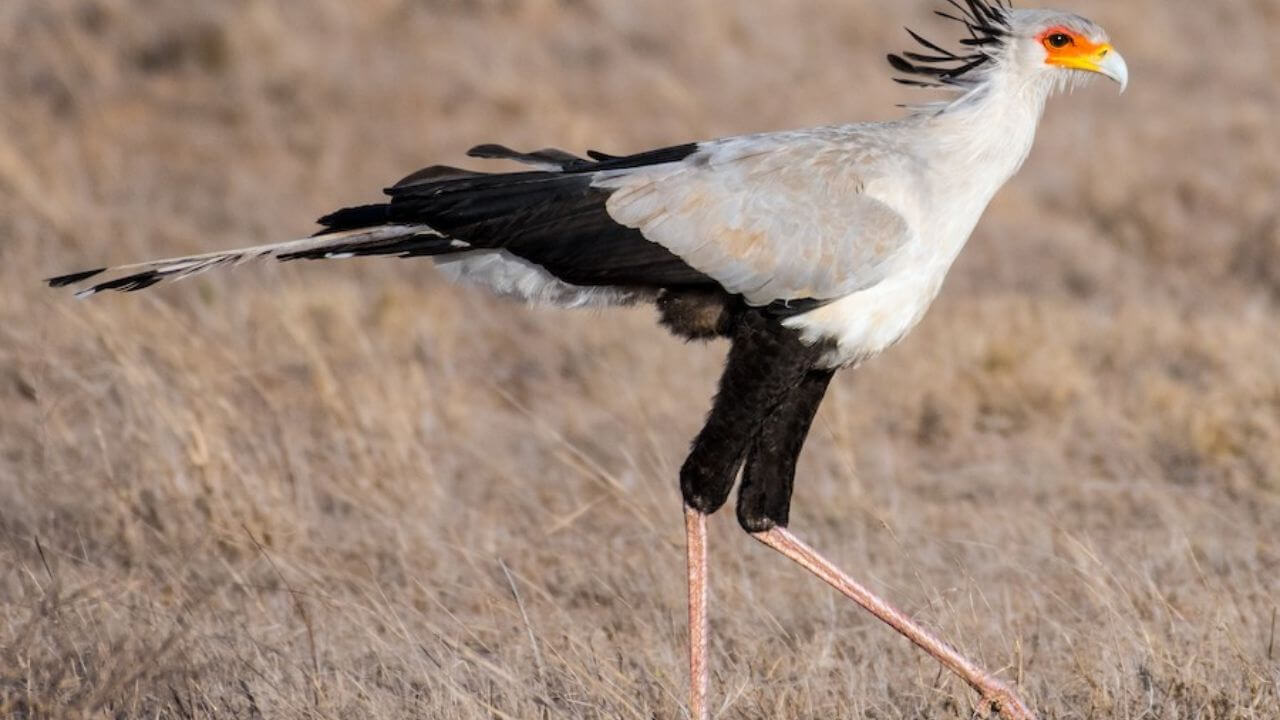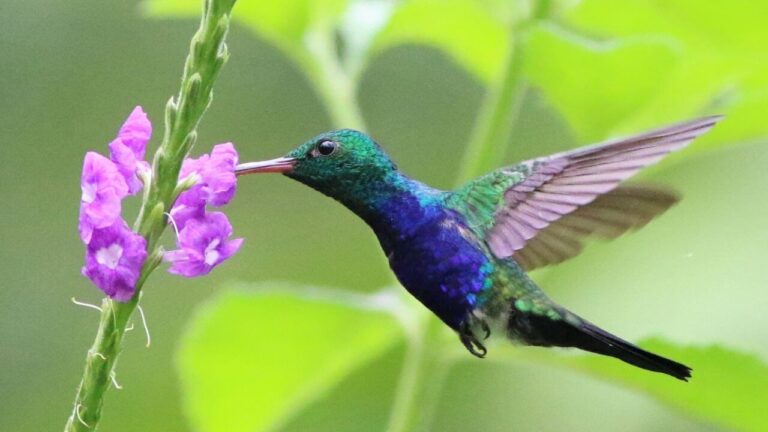Top 15 Interesting Animals With The Lowest IQ (With Pictures)
Intelligence is a fascinating and multifaceted trait, often celebrated in the animal kingdom for its remarkable manifestations. Not all creatures possess the same level of cognitive prowess. In a world where smarts can mean survival, some animals find themselves at the lower end of the IQ spectrum, struggling to navigate their environment with limited mental capacity.
From clumsy critters to seemingly clueless creatures, this exploration delves into the captivating realm of Animals With the Lowest IQ, shedding light on these endearing yet intellectually challenged beings that remind us of the diverse range of cognitive abilities found in nature. Join us as we embark on a journey through the intriguing world of these charmingly simple-minded inhabitants who prove that intelligence isn’t always a measure of success in the wild.
Animals With the Lowest IQ
The list of animals with low iq is given below:
| Number Of Animals | Animals With Lowest IQ |
| #1 | Pandas |
| #2 | Turkeys |
| #3 | Kakapos |
| #4 | Koalas |
| #5 | Flamingos |
| #6 | Secretary Birds |
| #7 | Sloths |
| #8 | Jellyfish |
| #9 | Jerboas |
| #10 | Ostriches |
| #11 | Sea sponge |
| #12 | Komodo Dragons |
| #13 | Killdeer |
| #14 | Norwegian Lemmings |
| #15 | Sea Cucumber |
Pandas
Scientific Name: Ailuropoda melanoleuca
Class: Mammalia
Diet: Herbivores
Pandas, known for their adorable appearance and playful demeanor, often receive criticism for their low IQ compared to other animals. However, this perceived lack of intelligence may be a result of their evolutionary adaptations rather than an inherent deficiency. Pandas have evolved to be highly specialized in bamboo consumption, leading them to prioritize energy conservation over complex problem-solving skills.

Despite their low IQ, pandas exhibit remarkable resilience and adaptability when faced with challenges in the wild. Their ability to survive on a diet consisting almost entirely of bamboo showcases their resourcefulness and survival instincts in harsh environments. Pandas demonstrate strong social bonds within their communities, showcasing emotional intelligence that goes beyond traditional measures of cognitive abilities. Ultimately, the perceived low IQ of pandas may not accurately reflect the true depth and complexity of these fascinating creatures.
Turkeys
Scientific Name: Meleagris gallopavo
Class: Aves
Diet: Omnivores
Turkeys are often dismissed as low IQ animals, but this reputation may not be entirely accurate. While they may not possess the intelligence of some other animals, turkeys demonstrate their cleverness in unique ways. For example, wild turkeys have been shown to exhibit complex mating behaviors and social structures, suggesting a level of cognitive sophistication that is not immediately apparent.
Turkeys have a remarkable ability to adapt to changing environments and overcome obstacles. Their keen senses help them navigate their surroundings with surprising efficiency, demonstrating an innate resourcefulness that belies their perceived lack of intelligence. Perhaps it is time we reevaluate our assumptions about the mental capabilities of these fascinating birds and appreciate the extraordinary ways in which they conquer challenges in their natural habitats.
Kakapos
Scientific Name: Strigops habroptilus
Class: Aves
Diet: Herbivores
Kakapos, also known as the owl parrot, are fascinating creatures native to New Zealand. These unique birds have a reputation for their low IQ compared to other parrot species. Despite their intelligence level, Kakapos have evolved remarkable survival strategies in their environment, such as being nocturnal and having exceptional camouflage abilities.

Kakapos may not score well on traditional intelligence tests, but they have unique skills that help them survive in their natural environment. They can mimic sounds and move through tough terrain easily, showing how adaptable they are. Even though they are considered to have low intelligence, their behaviors and social interactions demonstrate a level of understanding and communication that goes beyond standard intelligence tests.
Kakapos may not be smart in the usual way we think of animals being smart. But they have unique traits and ways of surviving that show how different species can be good at different things. We should think about intelligence in a wider way when looking at animals like Kakapos. It’s important to appreciate the different ways animals can be smart.
Koalas
Scientific Name:Phascolarctos cinereus
Class: Mammalia
Diet: Herbivores
Koalas are often perceived as adorable and cuddly creatures, but their intelligence may not be as high as their cuteness suggests. With a brain size smaller than expected for a mammal of their size, koalas have been shown to have low IQ levels compared to other animals. This cognitive limitation is evident in various aspects of their behavior, including their slow and lethargic movements, simple diet choices, and difficulty adapting to new environmental changes.
Despite their limited cognitive abilities, koalas have developed remarkable survival strategies in their eucalyptus-dominated habitat. Their specialized diet allows them to efficiently extract nutrients from toxic leaves that would be harmful to most other animals. This adaptation highlights the evolutionary trade-offs that can occur between intelligence and specialization in the animal kingdom. While koalas may not be solving complex puzzles or inventing new tools anytime soon, they demonstrate a unique resilience and resourcefulness that has enabled them to thrive in their specific ecological niche.
Flamingos
Scientific Name: Phoenicopteridae
Class: Aves
Diet: Herbivores
Flamingos are often underestimated for their intelligence due to their quirky behavior and vibrant pink feathers. Research has shown that these elegant birds may not exhibit the highest IQ compared to other animals. Despite their captivating presence, flamingos have limited cognitive abilities and rely heavily on instinctual behaviors for survival.

One interesting aspect of flamingo behavior is their tendency to flock together in large groups. This social behavior may indicate a lack of individual decision-making skills, as they often follow the lead of one dominant bird in the group. Flamingos display repetitive actions such as preening and mating dances, suggesting a limited range of cognitive abilities compared to more complex animal species.
Despite their low IQ levels, flamingos have adapted well to their environments over millions of years through natural selection. Their stunning appearance and synchronized movements continue to fascinate observers, highlighting that intelligence comes in many forms beyond traditional measures like problem-solving skills or reasoning ability.
Secretary Birds
Scientific Name: Sagittarius serpentarius
Class: Aves
Diet: Carnivorous
Secretary birds have often been labeled as low IQ animals due to their seemingly clumsy and slow movements. However, recent research suggests that their behavior is actually quite strategic and efficient. These birds are skilled hunters, using their sharp vision and powerful legs to catch prey such as insects, small mammals, and even snakes.
Their unique stomping technique to flush out prey from under bushes showcases their intelligence in adapting hunting strategies for different environments. Despite their perceived lack of intelligence, secretary birds have a complex social structure and communicate through various vocalizations and visual displays. This implies a level of cognitive ability necessary for successful social interactions within their own kind. Overall, these fascinating creatures challenge the notion of intelligence being solely based on traditional human standards.
Sloths
Scientific Name: 1. The three-toed sloth: Bradypus spp.
2.The two-toed sloth: Choloepus spp.
Class: Mammalia
Diet: Herbivores
Sloths are often associated with their slow movements and seemingly low IQ, but these fascinating creatures have unique adaptations that make them successful in their environment. Despite their sluggish nature, sloths have evolved to conserve energy by moving slowly and having a low metabolic rate. This behavior may give the impression of low intelligence, but in reality, sloths are well adapted to their arboreal lifestyle.

One interesting aspect of sloth behavior is their ability to camouflage themselves among the trees, blending in seamlessly with their surroundings. Their slow movements help them avoid being detected by predators such as birds of prey or large cats. Sloths have a specialized digestive system that allows them to efficiently break down tough plant materials while conserving energy. This intricate adaptation showcases the complex strategies that sloths have developed over millions of years to survive in the rainforest canopy.
Jellyfish
Scientific Name: Cnidaria
Class: Scyphozoa
Diet: Carnivores
Jellyfish are often considered the lowest iq animal due to their lack of centralized brain. Recent studies have shown that they possess a complex nerve net that enables them to navigate through the water and respond to environmental stimuli with surprising efficiency. This decentralized neural network allows jellyfish to thrive in various marine environments by adapting quickly to changes in temperature, salinity, and food availability.
Jellyfish are smart creatures that can do impressive things like swim against strong currents and hide from predators. Even though they don’t have a regular brain, they can solve problems to find food and stay safe. This special skill shows how clever jellyfish are and makes us rethink what we know about animal smarts.
Jellyfish may not be as smart as mammals or birds, but they are good at surviving in different ocean environments. They have a unique kind of intelligence based on instincts and adaptability. Studying their brains and behaviors can help us understand and respect these fascinating sea creatures and their important role in keeping our oceans healthy.
Jerboas
Scientific Name: Dipodidae
Class: Mammalia
Diet: Omnivorous
Jerboas, the fascinating creatures of the desert, are known for their quick and agile movements that defy their small size. Despite their remarkable physical abilities, these animals have been said to have a lower level of intelligence compared to other rodents. However, this perceived low IQ does not diminish the charm and allure of these unique creatures. Jerboas have evolved to survive in harsh desert environments, relying on instinctual behaviors rather than complex problem-solving skills.

The simplicity of Jerboas’ cognitive abilities allows them to focus on what truly matters in their environment: finding food and avoiding predators. Their basic survival instincts serve them well in the challenging landscape they call home. While some may see their limited intelligence as a drawback, it is precisely this trait that has allowed Jerboas to thrive in their natural habitat for centuries – a testament to the beauty of nature’s diverse adaptations.
Ostriches
Scientific Name: Struthio camelus
Class: Aves
Diet: Herbivores
Ostriches have long been associated with the stereotype of being low IQ animals, but recent research suggests that they may be smarter than previously thought. These large flightless birds have impressive memory capabilities, able to remember locations of food and water sources for extended periods. Ostriches exhibit complex social behaviors, such as forming strong bonds with their mates and offspring.

Ostriches possess a keen sense of hearing and vision, allowing them to detect predators from afar. They are also incredibly fast runners, capable of reaching speeds up to 45 miles per hour when threatened. Despite their reputation as low IQ animals, ostriches showcase remarkable adaptability and survival skills in the wild. It is clear that there is more to these magnificent creatures than meets the eye.
Sea sponge
Scientific Name: phylum Porifera
Class: phylum Porifera
Diet: Filter feeders
Sea sponges are often regarded as low IQ animals due to their lack of a centralized nervous system or brain. However, this seemingly simple creature is actually a marvel of nature with its unique abilities. One fascinating aspect of sea sponges is their remarkable regenerative power, as they can rebuild themselves from just a few cells if damaged or fragmented. This ability has captured the interest of researchers studying tissue regeneration and could hold potential insights for medical advancements in human health.
Despite their perceived lack of intelligence, sea sponges exhibit complex behaviors and interactions within their aquatic environment. They can filter large volumes of water to feed on bacteria and plankton, playing a vital role in maintaining the ocean’s ecosystem balance. Some species have developed intricate symbiotic relationships with other organisms, showcasing a level of adaptation and cooperation that challenges traditional notions of intelligence. Overall, while sea sponges may not possess conventional cognitive abilities, they continue to surprise us with their resilience and importance in the marine world.
Komodo Dragons
Scientific Name: Varanus komodoensis
Class: Reptilia
Diet: Carnivorous
The Komodo dragon, while not known for its intelligence compared to other animals, possesses unique hunting strategies that make it a formidable predator. Despite having a low IQ, these creatures exhibit cunning behaviors such as stalking prey for long periods before launching a swift attack. They rely on their powerful sense of smell to detect carrion from miles away, showcasing their efficiency in scavenging for food in their harsh environment.

Interestingly, recent research suggests that Komodo dragons may have some level of social intelligence when cooperating during group hunts. By working together to take down larger prey like water buffaloes, these reptiles showcase a primitive form of collaborative behavior that challenges traditional views of their intellectual capacity. While they may not possess higher cognitive abilities like problem-solving or tool use seen in other species, the Komodo dragons’ survival instincts and group dynamics shed light on the complexity of their social structures and behaviors in the wild.
Killdeer
Scientific Name: Charadrius vociferus
Class: Aves
Diet: Omnivorous
The Killdeer may not be the brightest bird in the avian world, but its survival tactics are nothing short of impressive. With a low IQ compared to other birds, the Killdeer relies on its instinctual behaviors to outsmart predators. One such behavior is its broken-wing act, where it pretends to be injured to lure predators away from its nest. This cunning strategy showcases the Killdeer’s resourcefulness and adaptability in the face of danger.
Despite its perceived lack of intelligence, the Killdeer exhibits remarkable parenting skills. Both male and female birds share responsibilities in building nests and caring for their young. This cooperative effort highlights the importance of teamwork and communication in ensuring the survival of their offspring. The Killdeer’s ability to navigate challenges with limited cognitive abilities demonstrates that intelligence is not always a measure of success in the animal kingdom.
Norwegian Lemmings
Scientific Name: Lemmus lemmus
Class: Mammalia
Diet: Herbivores
Norwegian Lemmings are fascinating creatures known for their extremely low IQ levels compared to other animals. Despite their lack of intelligence, they exhibit remarkable survival instincts that allow them to thrive in harsh Arctic conditions. Their ability to migrate en masse in search of food and form complex social structures based on hierarchy is truly remarkable and challenges the notion that intelligence is the sole measure of success in the animal kingdom.

Research has found that Norwegian Lemmings rely on instincts more than thinking, which makes us wonder about intelligence and adaptability in different animals. Even though they may not be very smart, their toughness and ability to adapt help them move through tough places easily. Watching these special animals teaches us about how different species can do well in hard environments, showing us that we should look at different kinds of intelligence, not just the usual ones.
Sea Cucumber
Scientific Name: Holothuroidea
Diet: Detritivores
The sea cucumber may be considered a low IQ animal by some, but its unique characteristics and behaviors are truly fascinating. These creatures have a remarkable ability to regenerate their bodies, including their organs and tissues, making them resilient and capable of surviving in harsh environments. Despite their simple nervous system, sea cucumbers exhibit complex feeding habits, using their tentacles to filter-feed on plankton and other small particles from the water.
Sea cucumbers play an important role in marine ecosystems by recycling organic matter and helping maintain ecological balance. Their presence helps improve water quality by removing excess nutrients from the environment. In addition to being beneficial for the ecosystem, some species of sea cucumbers are also valuable commercially for their medicinal properties and as a delicacy in certain cuisines around the world.
Final Words
Animals with the lowest IQ exhibit fascinating traits that showcase their unique adaptations and survival strategies. Despite their limited cognitive abilities, these animals have thrived in their respective environments through instinctual behaviors and remarkable physical attributes. Understanding the intelligence levels of different animal species sheds light on the diversity of life on Earth and the complex ways in which organisms interact with their surroundings.
By appreciating the simplicity and complexity of animal intelligence, we can deepen our appreciation for the natural world and the incredible diversity of living creatures around us. Let us continue to study and protect these amazing creatures to ensure their well-being and preservation for future generations.
FAQs
What Animal Has The Lowest Iq?
The animal with the lowest IQ is often considered to be the jellyfish. Jellyfish are simple, primitive creatures without a centralized brain or nervous system. They rely on instinctual behaviors and basic responses to stimuli, lacking the cognitive abilities seen in more complex animals.
What Is The 4 Smartest Animal?
The four smartest animals are often considered to be chimpanzees, dolphins, elephants, and crows.
What Animal Has The Highest IQ?
The animal with the highest IQ is commonly believed to be the bottlenose dolphin. Dolphins are known for their exceptional intelligence, problem-solving abilities, and complex social behaviors. They have demonstrated self-awareness, tool use, and the ability to understand symbolic language.
Which Animal Is Not Very Smart?
One animal that is often considered not very smart is the sloth. Sloths are known for their slow movements and seemingly lackadaisical behavior, which can give the impression of low intelligence.
What Is The IQ Of A Sloth?
The concept of measuring IQ in animals, including sloths, is somewhat misleading. IQ tests are designed for humans and assess cognitive abilities in a specific context that may not apply to other species. Sloths are known for their slow metabolism and leisurely lifestyle, which contributes to their unique adaptations rather than traditional measures of intelligence.
- Top Tips for Making a Hearty and Flavorful Cottage Pie - December 17, 2024
- Youthful Royal King Dublin Barrel Saddle Set: The Perfect Companion for Young Riders - December 5, 2024
- THC Cartridge: Buy It Using Digital Payment Options For These Benefits - December 3, 2024







